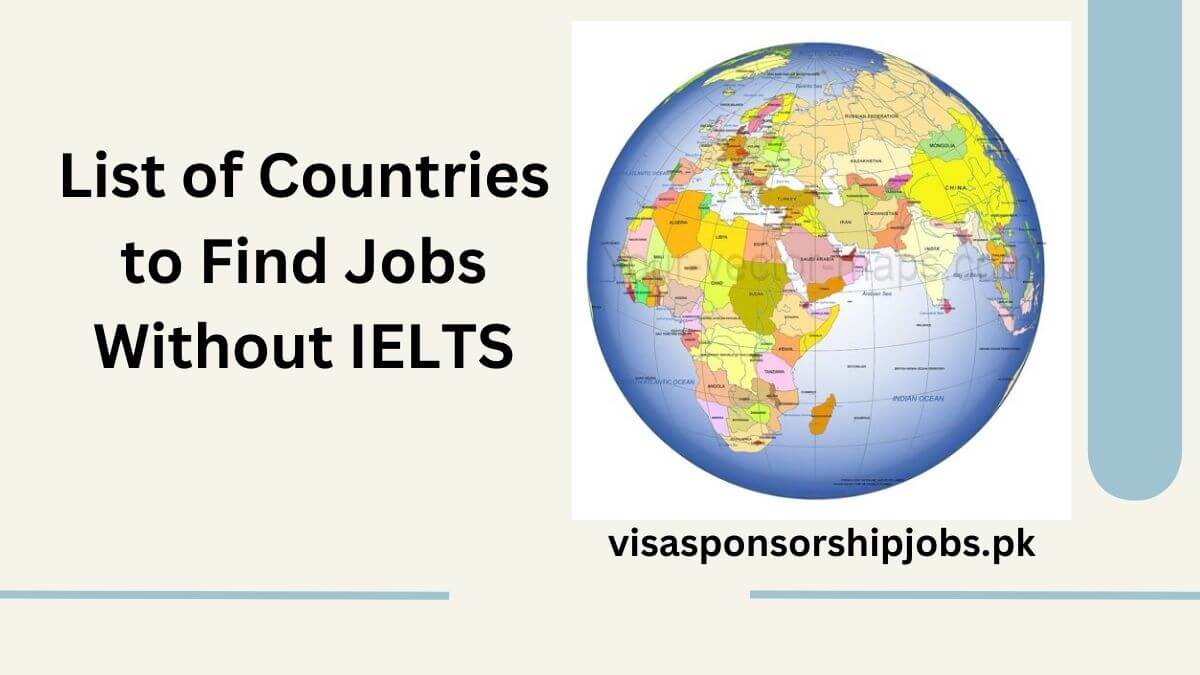Work VISA Jobs in Oman 2025 – Application Process
Oman will become a leading destination for ambitious professionals who are in search of a lifestyle that is characterized by natural beauty and cultural richness, in addition to high-paying opportunities. Oman simplifies access to a vibrant job market that is flourishing amidst an economic diversification drive through its streamlined employment visa process.
Not only is Oman a land of breathtaking landscapes and rich history, but it is also a burgeoning hub of career opportunities, particularly for those with skills in areas where the Sultanate is currently experiencing a shortage. Oman is located in the core of the Middle East. In 2025, Oman will expand its access to foreign expertise as part of its strategic diversification initiatives to reduce its energy dependence.
Check Also: Visa Sponsorship Unskilled Jobs in Switzerland
Therefore, this guide provides a comprehensive overview of the diverse Omani work visas that are available in 2025, identifies sectors that need qualified talent in Oman, and delineates the precise steps necessary to establish a fulfilling career in this hospitable nation.
Skill Shortage Occupations (Jobs) in Oman:
The demand for specific talents has increased as Oman diversifies its economy, creating lucrative opportunities for foreign professionals. The following are some regions that exhibit significant skill deficiencies:
- STEM Fields: Oman’s investments in infrastructure, technology, and innovation have resulted in a high demand for engineers, IT specialists, and data analysts.
- Healthcare: The demand for medical technicians, nurses, and physicians is on the rise due to the expanding healthcare sector.
- Education: As Oman prioritizes the enhancement of educational standards, there is a high demand for educators, particularly those who specialize in STEM and English studies.
- Tourism and Hospitality: The industry is experiencing growth, necessitating the employment of professionals in the fields of culinary arts, hotel management, and tour operations.
- Construction: Oman’s infrastructure development necessitates the employment of skilled laborers in the field of construction.
In these sectors, salaries can fluctuate significantly depending on factors such as negotiation, qualifications, and experience. Certain specialized positions offer salaries ranging from OMR 2,000 to 5,000 per month.
Step-by-Step Process to Find and Apply for Work VISA Jobs in Oman:
The process of locating and applying for employment in Oman is straightforward and efficient. The following is a succinct guide to assist you in your pursuit of the next career opportunity in this dynamic nation:
- Identify Opportunities: To locate job opportunities in Oman, consult platforms such as the ministry of labour, Bayt.com, GulfTalent, Indeed Oman, Rohmuscat, and Monster Gulf, which provide a diverse selection of listings across a variety of industries and career levels.
- Formulate your application: Tailor your resume and cover letter to emphasize your qualifications, experience, and why you are a suitable candidate for the position and the company. Develop a comprehensive package of job application documents.
- Implement: As specified in the job posting, submit your application via the company’s website or the job portal.
- Follow-Up: If you have not received a response within a few weeks, it may be beneficial to send a polite follow-up email to convey your ongoing interest.
- Interview: If you are invited to an interview, it is important to prepare by researching the company, rehearsing your responses to common interview questions, and formulating questions to ask the interviewer.
- Employment Visa Process: Your employer will typically sponsor your employment visa after you receive a job offer. Acquire the essential documents, including your passport, educational certificates, and medical report, for the visa application.
Benefits of Work VISA Jobs in Oman:
- Tax-Free Income: In contrast to countries with high-income taxes, Oman provides tax-free salaries, which enable expatriates to save a substantial portion of their earnings.
- Competitive salaries: Numerous occupations in Oman, particularly those in the oil and gas, engineering, healthcare, and education sectors, provide competitive salaries and appealing compensation packages.
- High Standard of Living: Oman’s standard of living is distinguished by its modern infrastructure, quality healthcare, and a diverse selection of amenities.
- Safety and Stability: Oman is renowned for its low crime rates and political stability, which create a secure and safe environment for expatriates and their families.
- Cultural Experience: The opportunity to immerse oneself in Omani culture, traditions, and hospitality, as well as to explore the country’s rich history and natural grandeur, is a distinctive feature of living in Oman.
- Professional Development: Oman’s substantial investments and opportunities in sectors such as oil and gas, construction, and education can significantly improve your professional experience and career prospects.
- Travel Opportunities: Oman’s strategic location in the Middle East facilitates travel to other countries in the region and beyond. Deserts, mountains, and coastlines comprise the nation’s breathtaking natural wonders.
- Modern Infrastructure: Oman has made significant investments in its infrastructure, including the provision of state-of-the-art transportation, healthcare, and educational facilities.
- Diverse Expatriate Community: Oman is home to a diverse expatriate community that provides a multicultural environment and opportunities to connect with individuals from various countries.
- Family-Friendly Ambiance: Oman is a welcoming destination for families, as it offers a variety of recreational activities, international institutions, and healthcare facilities. This is a common observation among expatriates.
- Healthcare Benefits: Numerous employers offer comprehensive healthcare benefits, guaranteeing that expatriates and their families have access to high-quality medical care.
- Housing Allowance: Employers frequently provide housing allowances or accommodations, which can substantially lower living expenses.
List of Top Recruitment Agencies in Oman to find jobs:
Consider collaborating with an established recruitment agency to expedite your visa application and job search. AJEETS Oman, Airswift, and Dynamic Staffing Services (DSS) are among the agencies that have a proven track record of successfully placing foreign workers in Omani positions, including those in sectors that are currently experiencing a shortage of skilled labor.
Oman Work Visa Types Available:
Oman meticulously regulates its workforce influx through a variety of work visas, each of which is customized to specific employment circumstances. Depending on your occupation, you may choose from the following three Omani work visas:
- Oman Employment (Work) Visa: The standard option for the majority of employees, necessitating employer sponsorship. This visa permits multiple entries and is effective for two years, with the option to renew.
- Oman Employment Contracting Visa: Intended for positions that necessitate government approval before commencement. Visas are issued for a single entry and are valid for two months. They are renewable for an additional month.
- Oman Temporary Work Permit: The temporary work permit for Oman is most appropriate for short-term undertakings. This permit specifies the visa’s validity, which is contingent upon the project’s duration and ranges from four to nine months.
The following are the general prerequisites for applying for a work visa in Omani:
- The applicant must be at least 21 years of age.
- Submission of two recent photographs (each measuring 6 x 4 cm).
- A copy of a legitimate passport.
- A contract of employment.
- A Ministry of Health-attested original medical certificate is necessary for nationals of specific countries, including India, Pakistan, the Philippines, Bangladesh, Indonesia, Sri Lanka, Egypt, Sudan, Ethiopia, Syria, and Nepal.
- In contrast, the fee for an Omani work visa is twenty (20) Omani riyals.
The standard Omani employment visa is valid for two years from the date of issuance, with the possibility of renewal contingent upon the employment contract and employer sponsorship.
Frequently Asked Questions:
How can I get a work visa in Oman?
Attested copies of relevant employee qualification certificates. Attestation of transcripts from educational institutions. The Ministry of Foreign Affairs in the employee’s home country attests to the transcripts. The employee’s home country receives an attestation from the Oman Embassy.
Is the Oman visa easy?
An Oman eVisa is the fastest and easiest way of obtaining a visa for Oman because travelers can submit their application and supporting documents online. Upon approval of the application, travelers electronically receive their eVisa confirmation.
How can I go to Oman for a job?
To sponsor each expatriate, the employer must obtain an individual work visa. A work visa is valid for two years from the date of entry. The employer must apply for a visa with the Royal Oman Police’s Immigration Department.









